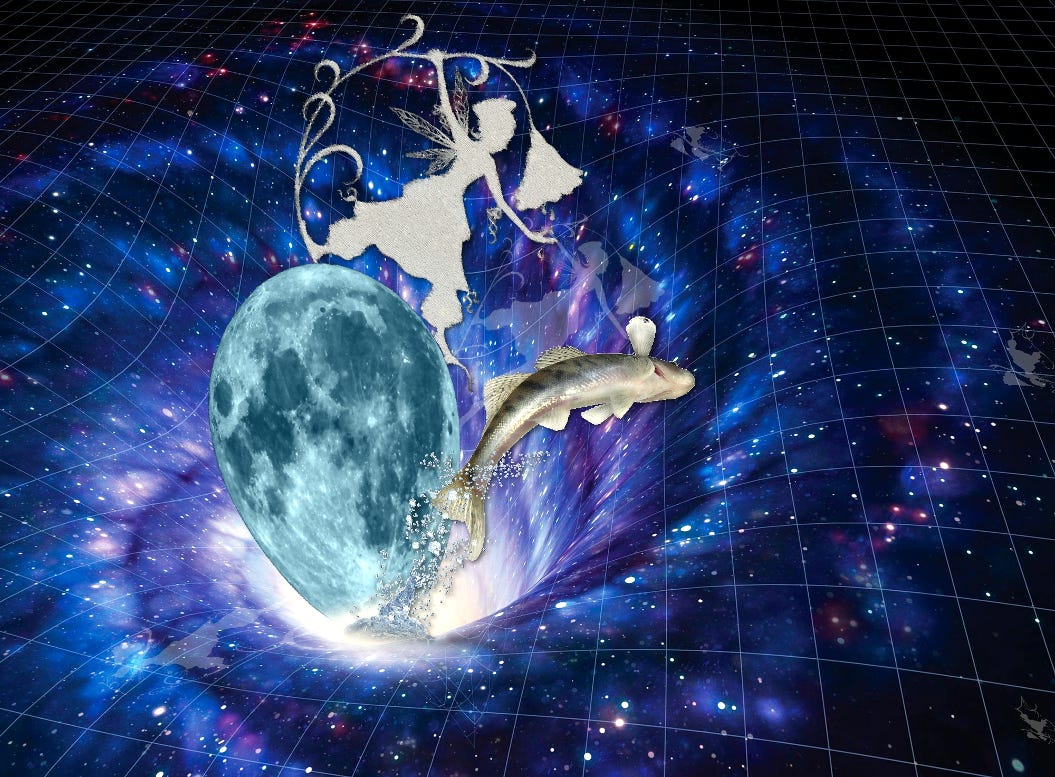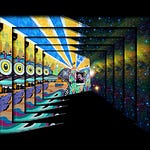With a partial eclipse on the way I've been contemplating alignments, both hidden and revealed. In particular, Hawk and I have been ruminating on The Transparency Society by the philosopher and cultural theorist Byung-Chul Han, so I'll share a few excerpts here:
"Today the word “transparency” is haunting all spheres of life—not just politics but economics, too. More democracy, more freedom of information, and more efficiency are expected of transparency. Transparency creates trust, the new dogma affirms. What is forgotten thereby is that such insistence on transparency is occurring in a society where the meaning of “trust” has been massively compromised.
Wherever information is very easy to obtain, as is the case today, the social system switches from trust to control. The society of transparency is not a society of trust, but a society of control.
If everything becomes public right away, politics invariably grows short of breath; it becomes short term and thins out into mere chatter. Total transparency imposes a temporality on political communication that makes slow, long-term planning impossible. A vision directed toward the future proves more and more difficult to obtain. And things that take time to mature receive less and less attention.
As total communication and total networking run their course, it proves harder than ever to be an outsider, to hold a different opinion. Transparent communication is communication that has a smoothing and leveling effect. It leads to synchronization and uniformity. It eliminates Otherness. Compulsive conformity proceeds from transparency. In this way, transparency stabilizes the dominant system.
Transparency is a neoliberal dispositive. It forces everything inward in order to transform it into information. Under today’s immaterial relations of production, more information and communication mean more productivity and acceleration. In contrast, secrecy, foreignness, and otherness represent obstacles for communication without borders. They are to be dismantled in the name of transparency.
Transparency makes the human being glassy. Therein lies its violence. Unrestricted freedom and communication switch into total control and surveillance. Social media are also coming to resemble, more and more, digital panoptica that discipline and exploit the social.
In disciplinary society, the occupants of the panopticon were isolated from each other for more thorough surveillance, and they were not permitted to speak. The inhabitants of the digital panopticon, on the other hand, engage in lively communication and bare themselves of their own free will. In this way, they actively collaborate in the digital panopticon.
The digital society of control makes intensive use of freedom. It is only possible thanks to voluntary self-illumination and self exposure. It exploits freedom. The society of control achieves perfection when its inhabitants do not communicate because of external constraint but out of inner need—that is, when the fear of giving up a private and intimate sphere yields to the need to put oneself on display shamelessly.
Transparency is an ideology. Like all ideologies, it has a positive core that has been mystified and made absolute. The danger of transparency lies in such ideologization. If totalized, it yields terror.
***
Today’s society of control possesses a distinct panoptic structure. In contrast to the occupants of the Benthamian panopticon, who are isolated from each other, the inhabitants of today’s panopticon network and communicate with each other intensively. Not lonesomeness through isolation, but hypercommunication guarantees transparency. Above all, the particularity of the digital panopticon is that its inhabitants actively collaborate in its construction and maintenance by putting themselves on display and baring themselves. They display themselves on the panoptic market. Pornographic putting-on-display and panoptic control complement each other. Exhibitionism and voyeurism feed the net as a digital panopticon. The society of control achieves perfection when subjects bare themselves not through outer constraint but through self-generated need, that is, when the fear of having to abandon one’s private and intimate sphere yields to the need to put oneself on display without shame.
***
Trust is only possible in a state between knowing and not-knowing. Trust means establishing a positive relationship with the Other, even in ignorance. It makes actions possible despite one’s lack of knowledge. If I know everything in advance, there is no need for trust. Transparency is a state in which all not-knowing is eliminated. Where transparency prevails, no room for trust exists. Instead of affirming that “transparency creates trust,” one should instead say, “transparency dismantles trust.” The demand for transparency grows loud precisely when trust no longer prevails. In a society based on trust, no intrusive demand for transparency would surface. The society of transparency is a society of mistrust and suspicion; it relies on control because of vanishing confidence. Strident calls for transparency point to the simple fact that the moral foundation of society has grown faulty, that moral values such as honesty and uprightness are losing their meaning more and more. As the new social imperative, transparency is taking the place of a moral instance that would break new ground.
***
Today the entire globe is developing into a panopticon. There is no outside space. The panopticon is becoming total. No wall separates inside from outside. Google and social networks, which present themselves as spaces of freedom, are assuming panoptic forms. Today surveillance is not occurring as an attack on freedom, as is normally assumed. Instead, people are voluntarily surrendering to the panoptic gaze. They deliberately collaborate in the digital panopticon by denuding and exhibiting themselves. The prisoner in the digital panopticon is a perpetrator and a victim at the same time. Herein lies the dialectic of freedom. Freedom turns out to be a form of control."
~ Byung-Chul Han
I'd also like to recommend the documentary HyperNormalisation. Clicking on this link will take you to the video hosted on the ThoughtMaybe site.
HyperNormalisation wades through the culmination of forces that have driven this culture into mass uncertainty, confusion, spectacle and simulation. Where events keep happening that seem crazy, inexplicable and out of control—from Donald Trump to Brexit, to the War in Syria, mass immigration, extreme disparity in wealth, and increasing bomb attacks in the West—this film shows a basis to not only why these chaotic events are happening, but also why we, as well as those in power, may not understand them. We have retreated into a simplified, and often completely fake version of the world. And because it is reflected all around us, ubiquitous, we accept it as normal. This epic narrative of how we got here spans over 40 years, with an extraordinary cast of characters—the Assad dynasty, Donald Trump, Henry Kissinger, Patti Smith, early performance artists in New York, President Putin, Japanese gangsters, suicide bombers, Colonel Gaddafi and the Internet. HyperNormalisation weaves these historical narratives back together to show how today’s fake and hollow world was created and is sustained. This shows that a new kind of resistance must be imagined and actioned, as well as an unprecedented reawakening in a time where it matters like never before.













Share this post